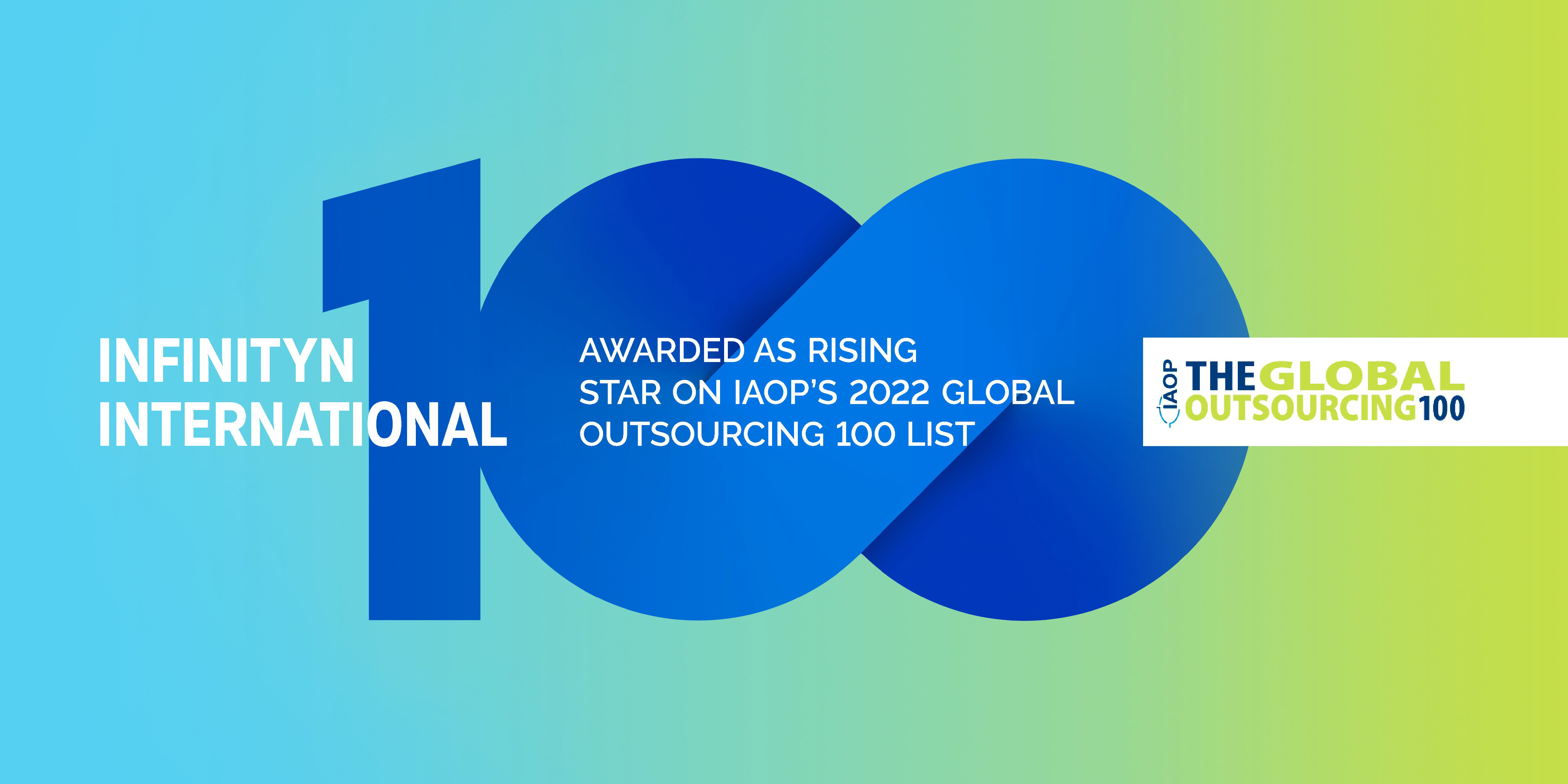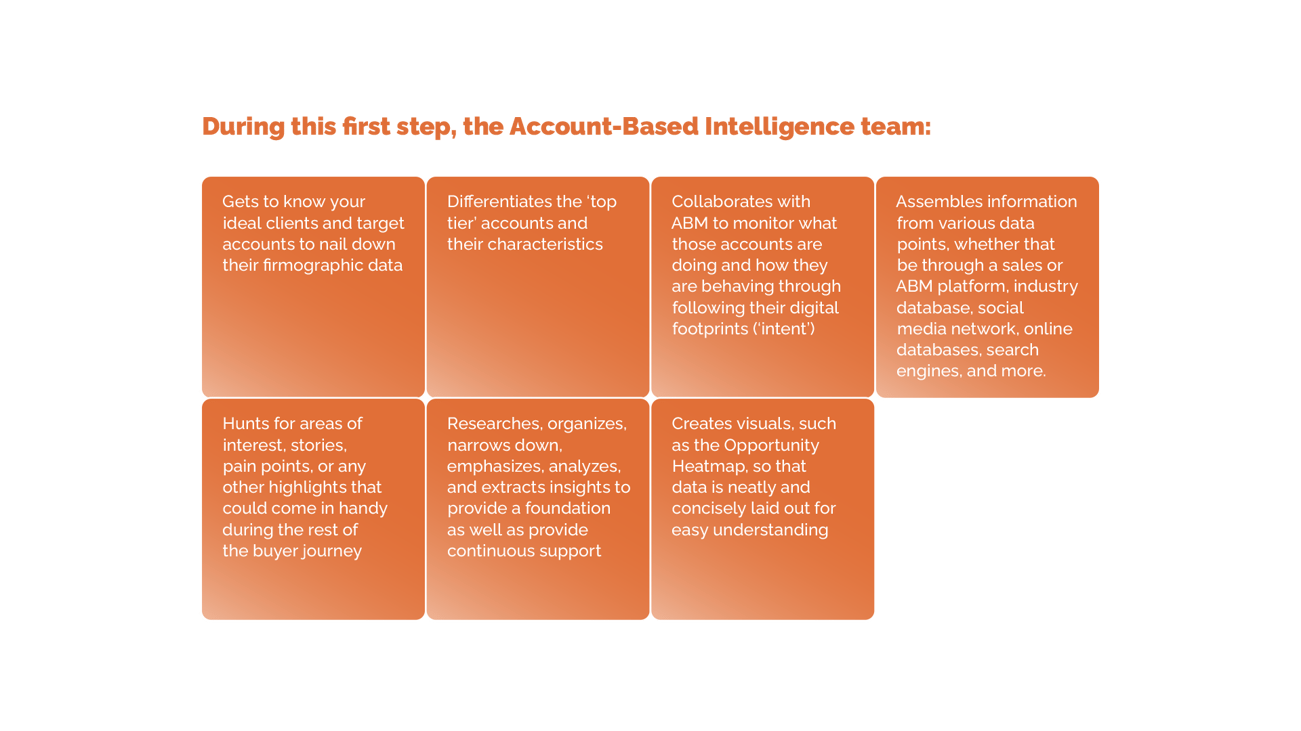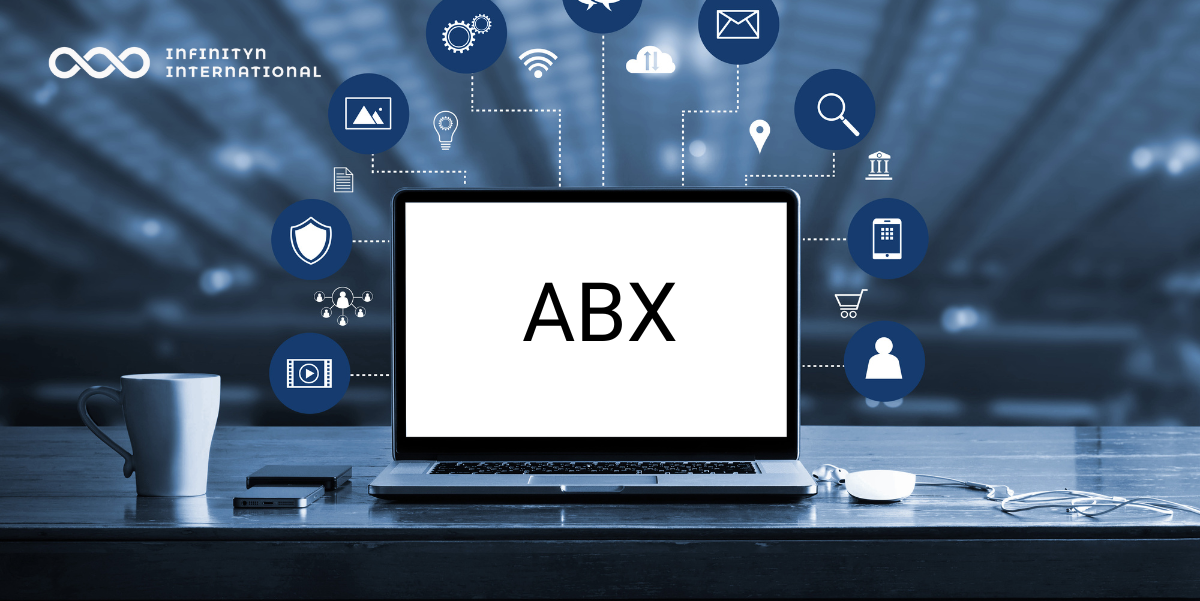The Evolution of Account-based Marketing and its Future
Account-Based Marketing or ABM has undoubtedly become a defining element of B2B business development. It has been constantly evolving and it’s not...
5 min read
Admin : Mar 12, 2024 5:54:32 AM
The world of Marketing and Sales is an exciting and rather hectic one – sometimes unpredictable and sometimes easy to calculate, but no matter what the situation might be, the need for change and transformation has always been inevitable throughout the history of business.
There are several different ways to go about dealing with these changes, however, the greatest leaders know that the best approach is constantly seeking opportunities for growth with an agile mindset. With the help of agility, organizations are able to stay relevant and to be always up to date in terms of their strategies against the given challenges the market may bring.
If we look around in today’s circumstances, we see various new trends emerging in the B2B business, such as the push for better customer experience, the increased application of both sales and marketing technology stacks, most importantly personalization.
In this article, our aim is to briefly investigate Marketing Technology and to elaborate on the reasons behind the sudden growth of marketing personalization’s importance in B2B context through definitions, useful guidelines and through interesting statistics based on numerous companies’ experience that may give us pointers on getting the implementation right.
Marketing departments are becoming more and more reliant on technology and tech stacks, which provide marketing specialists means to be able to work more efficiently with the help of different strategies and tools, see data analysis, automation, and personalization. But before diving into the topic of personalization, let’s look into what marketing technology really means in the everyday life of a company.
According to MerlinOne.com, ‘MarTech, otherwise known as Marketing Technology, is the term for the software and tech tools marketers leverage to plan, execute, and measure marketing campaigns.’ To put it in another way, MarTech includes all the technologies and tools that marketing uses and needs to meet the expectations and requirements of modern-day business, with its stylish blended name following current trends as well.
Marketing technology itself has a wide variety of benefits to offer for organizations that embrace its tools. Besides the huge advantage of saving time and resources with automation, MarTech provides an opportunity to integrate tools that work together perfectly, creating a seamless organic system that pushes the marketing team and companies to their best efficiency.
What is more, in the past, professionals had no choice but to carry out lengthy campaigns and their strategies often failed due to the unavailability of essential data and information at crucial times. Fortunately, modern MarTech resolved this issue since its tools can provide insightful data visualization and real-time data any time it is required for the sake of a coherent strategy.
All in all, MarTech proposes great solutions to many problems an organization may have to face on their journey towards success, one of them is the aspects of marketing personalization. In the following, let’s see the real importance of personalization and the way it should be applied to its best advantage.
We already know that MarTech is a real game-changer and personalization is one of its elements but how exactly should we start planning it? Can we consider personalization a whole new concept and what degree of it is enough?
First of all, as defined by MarTech, ‘personalization is a one-to-one marketing strategy that seeks to better understand and connect with customers. It uses real-time data and insights to deliver highly relevant messages and offers.’ A few instances of the latest personalization trends include personalized emails and websites, custom recommendations and less generic advertisements.
As for the latter question, the answer is that using this strategy is not completely new for marketers – adding names to emails in a campaign and so on – however, from a certain point the prevailing practices did not work as well as they used to. Marketing experts had to take a more client-centric and more targeted approach which focuses on the client’s needs, so that they could be provided with relevant content in the right time. The data for this purpose comes from powerful and versatile MarTech tools that give experts deep insights about what the client needs.
This is the result of the changing demand of customers and prospects on the market. For this method to work, we must always pay close attention to our targets, who are most probably bombarded with brand messages which makes it incredibly hard for marketers to have a real connection with their audience. This lack of real connection is precisely the inducing factor that called for more marketing personalization. Even in a B2B environment, customers wish to be treated as individuals instead of mere numbers or targets.
Although there are quite a few ways to kickstart, we must keep in mind that in any case, personalization strategies are going to vary according to a company’s agenda – one may already have CRM tools, which makes integration a significantly more seamless, and the other might be completely unfamiliar with the tools. Further on, we are set to discover some of the means of personalization and ideas that can make a real difference.
The main goal of our MarTech strategy may appear relatively simple: To give the right content to our buyers at the right time to help them make their decisions about purchasing easily and as quickly as possible. In reality, getting started with personalization may prove to be a bit difficult and this is why gathering insightful pointers from professionals always comes in handy.
A three-step guide emphasizes that the first step we should take is to determine and prioritize our buyers. We can identify a customer’s value by considering several factors: company size, highest ROI, whether it has short- or long-term profitability, difficulty, and loyalty impact.
Once we have qualified some companies, there are additional ‘filters’ we may apply, such as ‘determining the ease of access based on geographic availability, language, and status.’ In case an account is not easy to access, it becomes a mere placeholder that takes away valuable time from other more promising buyers. Focusing on higher-value prospects is key for B2B organizations.
The second step encourages us to establish B2B buyer types and roles. With proper knowledge about individuals in the buying cycle, efforts, and resources often go to waste, as people in different roles require different content, which means differences in marketing personalization. To see an example, a ‘project-based engineer is likely top of the sales funnel–in the research and consideration phase—and needs specifications and configuration options to properly plan their projects.’
Last but not least, the third step conveys a clear and loud message: avoid overengineering! Having gathered a lot of data and information to personalize content and engineer their digital activities, marketers often they already know what their buyers need and want.
Instead of focusing on their narrative, specialists should actively pay attention to the requirements of prospects and use these observations to enhance the buying experience.
To learn more about data interpretation and how experts use data to its best advantage, take a look at our article on data visualization!
Integrating and launching marketing personalization takes a lot of effort, however, the advantages in return are tremendous and crucial to the growth of an organization. An important benefit we already touched upon on the first page is being less time-consuming. Instead of lengthy buying cycles, with the help of personalized marketing, B2B companies can pay meticulous attention to prospects who are already qualified and prove to be more promising than others.
As Forbes explains, ‘rather than treating all leads the same, personalization delivers hyper-relevant content, product recommendations, and reviews’.
Moreover, personalization is relevant and important in the case of sales as well. Having valuable data provided to them, the team can identify and approach higher-value prospects, which is way more efficient compared to making cold calls. Additionally, information about the targeted customer is a key factor in the increase of sales and conversion rate too.
Upon mentioning this benefit in their article, Digitalzone writes that ‘when you know your customer, you can offer the product or service what exactly they want’. As for the invested resources, McKinsey reports that ‘personalization can deliver five to eight times the ROI on marketing spend, and can lift sales by 10% or more.’
Another convenience of personalized marketing is that it enhances customer experience. This itself means a variety of advantages, customers will feel valued – a personalized experience ‘makes their whole customer journey easier, and it transforms the buying process from a transaction into a relationship’, as suggested by Mailchimp. Feeling appreciated urges them to buy more of our products and their trust in our recommendations results in them being very likely becoming loyal customers.
The enhanced customer experience and the increase in customer loyalty will then help boost brand awareness, since ‘as a company, you are automatically improving your brand image if you care about your customer needs’, based on Digitalzone’s proposal.
There is no doubt that marketing personalization is the future of B2B businesses as well, introducing important benefits both short- and long-term. The number of companies embracing MarTech is constantly growing, it is about time for us to join this soaring trend and let it help us skyrocket.

Account-Based Marketing or ABM has undoubtedly become a defining element of B2B business development. It has been constantly evolving and it’s not...

The beginning of the 2020s most definitely meant the beginning of a new era in many regards, including the world of business. Although exceptionally...

Marketing goes beyond promotion. Marketing is creativity, profound planning, understanding of your audience, analysing data – especially nowadays,...

A new business model for outsourcing enterprise growth activities: Growth Process Outsourcing! It’s no news that outsourcing is a red-hot trend....

What’s the philosophy behind the technology of the most successful ABM programs? Answering this question was not the original intent when we set out...

TOPO’s “2019 ACCOUNT BASED BENCHMARK REPORT” – which included 150 account-based organizations - showed that every participant reached or exceeded a...

What we call agile account-based marketing (AABM), is a newly emerging discipline. As such, the industry of marketing service providers - agencies...

“Every company wants to increase revenue.” That’s a pretty safe and agreeable statement to make.

The industrial sector seems to experience major lags regarding digitalization and automation – the latest trend that is currently defining the...

Evolving the SDR Role The business landscape is in constant flux, and with it, the role of the Sales Development Representative (SDR) must evolve. As...

Businesses across different sectors and industries are facing hardships amidst the economic haze that has been looming over the world from the...

Strategic Investment in Technology In the ever-evolving landscape of business, the journey from product ideation to market success is riddled with...